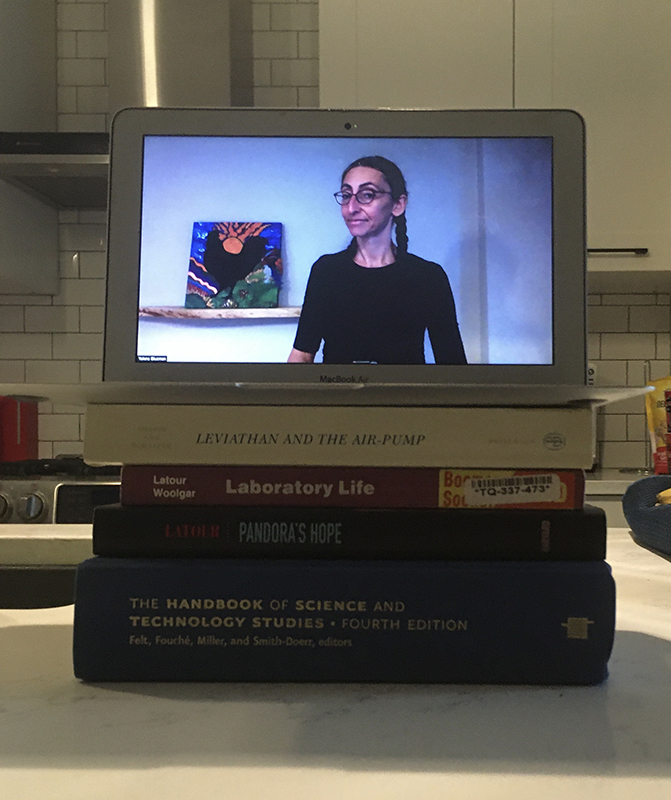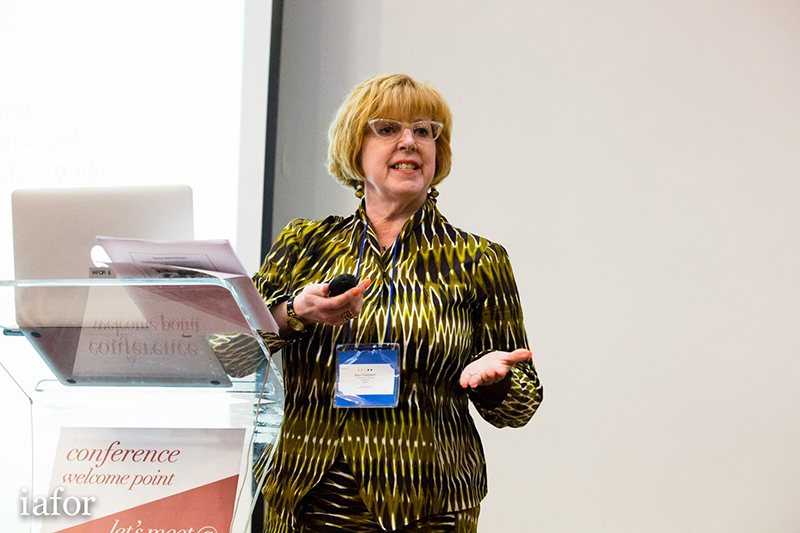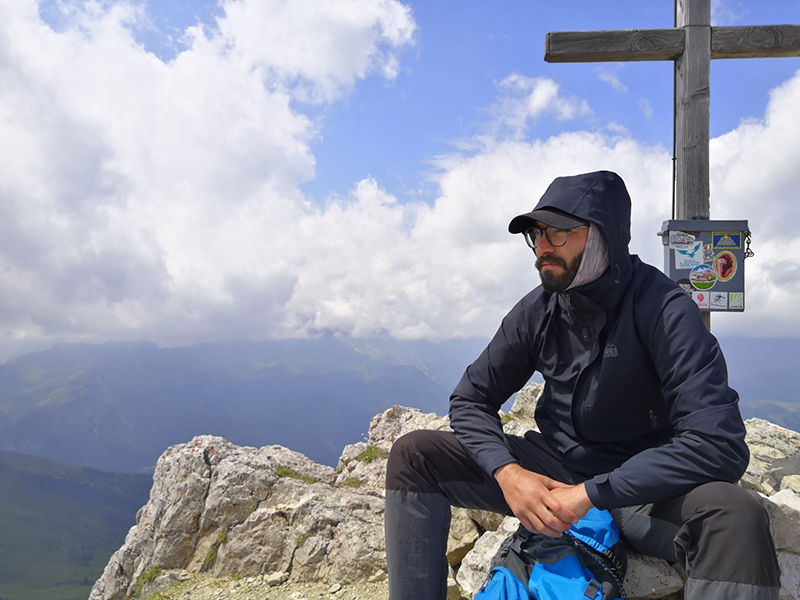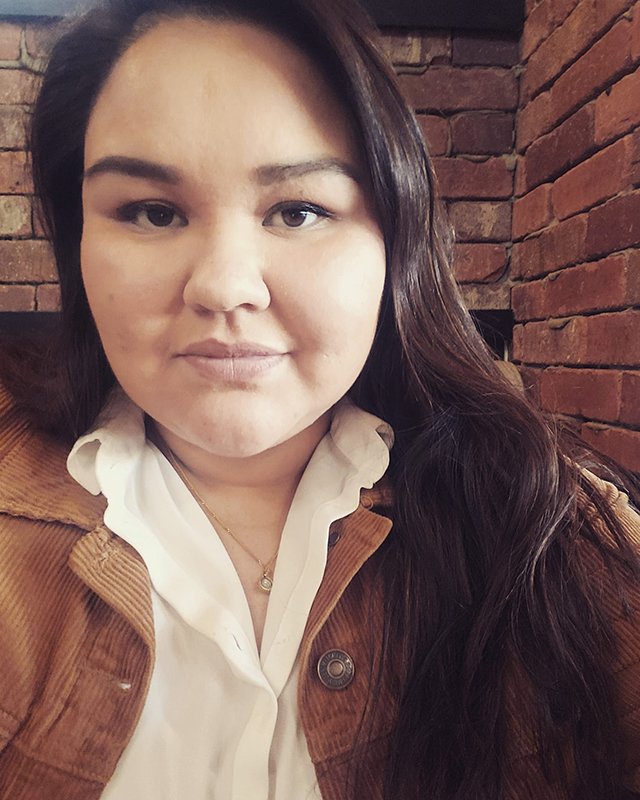Meet the New Faculty Members in Arts
Marcie Whitecotton - 23 September 2021
 Meet Yelena Gluzman, Art & Design and STS professor
Meet Yelena Gluzman, Art & Design and STS professor
Yelena Gluzman comes to Arts from the University of California San Diego (UCSD), where she completed her PhD. She is an experimental theatre director and filmmaker, and works across disciplines of cognitive science, interaction studies, critical disability studies, and feminist STS. She now makes her home here cross-posted between the Art & Design department and Science, Techonology and Society program in Media and Technology Studies.
A native New Yorker and avid camper, Yelena was drawn to the University of Alberta because of our strong interdisciplinary culture, which is similar to that of UCSD.
Many of our usual questions would not apply, but here are a few answers.
Q: You can invite anyone — alive or dead, real or fictional — to dinner. Who would it be?
YG: I am not sure who I would choose, but they would have to cook, as I can’t cook!
Q: What’s one thing you can’t live without?
YG: Feeling interested in the world
Q: What’s your favourite distraction?
YG: Camping and hiking! I am really looking forward to checking out the river valley trails!
Yelena loves meeting new people, so if you see her on campus, introduce yourself!
 Katy Campbell, new to Arts, but not the UofA
Katy Campbell, new to Arts, but not the UofA
Katy Campbell is no stranger to the University of Alberta.
Not only are all her degrees from here, but she was previously the Dean of the Faculty of Extension before joining the Faculty of Arts in the Department of Women’s and Gender Studies.
Katy’s scholarly and professional background is in instructional design and, more currently, the scholarship of engagement. She studies the identity development of designers and engagement scholars and leaders with a feminist, post-structuralist lens. She is particularly interested in sociocultural influences on design education, design practice, and the institutionalization of university-community engagement.
After a decade as an instructional designer in the Faculty of Education (U of A), She started her academic career at the State University of New York (SUNY) and from there took up a position as Distance Education Coordinator at Keewatin Community College in northern Manitoba. From there, she joined the U of A in 1996. Most recently, she was Dean of the Faculty of Extension.
Katy answered some questions for us!
Q: Thinking back, what was your favourite Undergrad or Grad class?
KC: As an undergraduate, I was a French major, and loved my classes from Pierre and Madeline Monod. Douglas Parker in the Faculty of Education opened my eyes to learning simulations in the modern language classroom. Jean Clandinin started me down the road to narrative inquiry. There are so many others I could mention, including Myer Horowitz.
Q: You can invite anyone — alive or dead, real or fictional — to dinner. Who would it be?
KC: Allied spies from World War II, the women.
Q: What’s one thing you can’t live without?
KC: Dogs and ice cream.
Q: What’s your favourite distraction?
KC: Reading procedurals, spy novels, and murder mysteries. I've just taken up mosaics. But grandchildren are the best distraction of all.
Welcome to Arts, Katy!
 Meet our newest Economics assistant professor: Marco Brianti
Meet our newest Economics assistant professor: Marco Brianti
Marco Brianti most recently made his home in Boston, where he got his PhD at Boston College in the Economics Department. He has recently moved to Edmonton with his wife and their two cats.
Now situated in the Department of Economics, his research is in macroeconomics, monetary economics, macroeconometrics, and macro-finance.
We caught up with Marco and asked him some questions:
Q: Thinking back, what was your favourite Undergrad or Grad class?
MB: I liked Mathematical Economics
Q: You can invite anyone — alive or dead, real or fictional — to dinner. Who would it be?
MB: I would say, Lady Gaga. She is talented and smart, and her life is definitely interesting!
Q: What’s one thing you can’t live without?
MB: Sports. I love playing all types of sports. It is a big part of my life.
Q: What’s a weird pet peeve you have?
MB: I do not like waiting. It seems like someone is stealing a part of my life while I am in line waiting for my turn.
Q: What’s your favourite distraction?
MB: I like playing chess online. I try to avoid too many chess games while I am working :)
We look forward to challenging Marco to a game of chess in the near future!
 Meet our newest Indigenous scholar, Sociology professor Paulina Johnson
Meet our newest Indigenous scholar, Sociology professor Paulina Johnson
Paulina Johnson, Sîpihkokîsikowiskwew (Blue Sky Woman), is Nêhiyaw (Plains Cree) and a citizen of Samson Cree Nation in Maskwacis, AB. She completed her Bachelor of Arts Degree in Anthropology and History with Distinction from the University of Alberta in 2012, and went on to complete her Master of Arts in History and Doctor of Philosophy in Anthropology at Western University in London, Ontario. She studies with Dr. Regna Darnell and Haudenosaunee scholar Dr. Susan Hill. Her doctoral degree focused on Nêhiyaw law and governance with an importance of implementing Indigenous philosophies and methodologies into western institutions and systems. She also developed the Indigenous Studies Minor at Concordia University of Edmonton where she was an Assistant Professor of Indigenous Studies. Now she can be found in our Sociology department.
Currently, Paulina’s research interests include telling Indigenous stories through her family’s stories and lived experiences. She is focused on Indigenous women’s voices in academia and professional settings where institutional racism, gender discrimination, and oppression occur, and how we can utilize this knowledge to re-examine these realities and liberate Indigenous experiences.
We asked Paulina the following questions:
Q: Thinking back, what was your favourite Undergrad or Grad class?
PJ: One of my favorite classes was with Palestinian scholar Dr. Randa Farah at Western University that was focused on “Memory, Identity, and Place” and where I was able to share how memory and landscape is embedded in Nêhiyaw (Plains Cree) culture and language, and how time has no limits in oral narratives.
Q: You can invite anyone — alive or dead, real or fictional — to dinner. Who would it be?
PJ: My dad – who is real and alive, and my greatest support.
Q: What’s one thing you can’t live without?
PJ: Tacos.
Q: What’s a weird pet peeve you have?
PJ: When searching for knowledge about BIPOC experiences, many often overlook the emotional labour it entails. It's not weird but not noted enough.
Q: Anything else you’d like to include?
PJ: I am excited for the opportunity to return to the U of A as faculty and bring a multi-disciplinary approach to my teaching and research that is grounded in the knowledge of Indigenous scholars, Elders, and Knowledge holders that have come before me and who have taught me. Keep an eye out for my podcast The Auntie Is In launching January 2022 where I examine the untold history of Maskwacis alongside my community members as we share our truths and narratives.
Welcome back to Arts, Paulina!